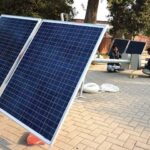1. Introduction: Bridging the Digital Divide in Rural Pakistan
In a remarkable move to improve education access, a Pakistani startup has launched an offline learning app, designed specifically for students in remote and underserved rural communities. With widespread internet and device limitations in these areas, the initiative aims to transform the way students learn by bringing digital education directly to their hands—no connectivity required.
2. Why Offline Education Matters for Rural Areas
While urban students often benefit from online classes and e-learning platforms, their rural peers struggle with poor internet, limited electricity, and lack of devices. By providing offline app access, students can:
- Download curriculum-aligned lessons in low-connectivity zones
- Learn without interruptions due to power or data outages
- Access content at their own pace, overcoming logistical and infrastructural barriers
This empowers learners in villages to engage with quality educational materials, bridging a critical learning divide.
3. The Startup’s Vision and Mission
The startup—emerging from Pakistan’s vibrant EdTech ecosystem—aims to deliver high-quality, curriculum-aligned content in Urdu, potentially complemented by regional languages. Their mission is clear:
- To support rural students who lack reliable internet or laptops
- To offer interactive video lessons, quizzes, and flipbooks
- To align learning resources with national curricula from K–12
By making digital tools accessible offline, they envision raising literacy, numeracy, and comprehension among marginalized learners.
4. Content and Features of the App
Drawing inspiration from successful models like SABAQ’s SELD Learning App, which delivers animated video lessons, flipbooks, quizzes, and multilingual support in Sindh RedditWikipedia+13The News+13Dawn+13LinkedIn+1pakuptech.com+1pakuptech.com, the new app includes:
- Animated video lessons in core subjects
- Interactive quizzes after each lesson
- Downloadable flipbooks for self-paced study
- Progress tracking without needing a live connection
The content is thoughtfully designed for low-bandwidth use and easily loadable onto inexpensive devices or microSD-enabled school tablets.
5. Pilot Deployment and Partnerships
The startup has launched a pilot in several rural districts, partnering with local government schools and NGOs. Teachers are trained to:
- Install the app on shared tablets or school micro-servers
- Facilitate lessons and quizzes in blended learning sessions
- Monitor student progress through offline reports
This model mirrors the rollout of SABAQ’s scale—which deployed offline versions to 67 schools across Sindh’s Badin, Tando Muhammad Khan, and Tando Allah Yar districts in 2021 Dawn+4LinkedIn+4pakuptech.com+4The News—demonstrating a tested blueprint for success.
6. Challenges and the Startup’s Solutions
a. Device and Infrastructure Gaps
Many rural schools lack reliable power or tablets.
Solution: Devices are preloaded and distributed via NGO or government support; solar charging stations are being piloted in off-grid areas.
b. Teacher Readiness and Training
Some teachers are unfamiliar with EdTech tools.
Solution: The startup conducts workshops that cover app usage, offline lesson facilitation, and content integration into daily teaching.
c. Curriculum Relevance and Localization
A one-size-fits-all approach doesn’t work.
Solution: Content is aligned with provincial curricula, localized into Urdu and regional languages, echoing the multilingual approach used by SABAQ Pakistan Today.
7. Benefits for Students and Communities
- Enhanced Learning Outcomes: Interactive lessons help students grasp fundamental concepts with clarity.
- Consistent Access: Learning continues uninterrupted, even during power or internet outages.
- Teacher Empowerment: Educators gain confidence using digital tools and delivering engaging lessons.
- Parental Engagement: School-community workshops ensure families support at-home learning.
8. Community Voices and Early Impact
Teachers and parents involved in the pilot have shared positive feedback:
“This is the first time that students in our village could learn with animated videos—hands-on and fun” – a teacher in northern Punjab.
These early testimonials reflect what Taleemabad achieved—broadcasting lessons on TV and offline app downloads reached underserved areas We Talk Startups+2pakuptech.com+2pakuptech.com+2. This new app mirrors that impact but with added interactivity.
9. Scaling Strategy: From Pilot to Nationwide Reach
To scale the initiative, the startup plans to:
- Expand to additional districts based on pilot success
- Partner with provincial education departments for distribution
- Seek funding from international agencies and CSR initiatives
- Develop offline teacher dashboards and automated assessment reports
By following models set by SABAQ and Taleemabad, the roadmap includes both technology rollout and teacher empowerment.
10. The Broader EdTech Movement in Pakistan
This initiative joins a wave of Pakistani EdTech innovation:
- Maqsad, with over 1 million users, offers bilingual learning and AI-personalized paths The Express TribuneWe Talk Startups+2startupbubble.news+2pakuptech.com+2Technology Times+1We Talk Startups+1.
- Taleemabad, with 1 million+ downloads and TV tie-ups, delivers offline-friendly lessons .
- Edkasa raised $320 k to launch an app for exam prep in science and math pakuptech.com+4Dawn+4Dawn+4.
Together, these ventures are reshaping Pakistan’s educational landscape through digital inclusion and curriculum-based content.






